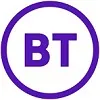Full Course
£110
£275Course Includes:
-
Online Study Mode
-
450 Hours
-
Study at your own Pace
-
Completion Certificate
Key Aspects of Course
-
Level 5 Diploma
-
Full Online Course
-
CPD Approved
-
Employer Approved
-
Fully Endorsed Course
-
450 Hours Training
-
No Entry Requirements
-
Boost Your Resume
-
Own Pace Study
-
Premium Course Material
-
Completion Certificate
£110
£275
Advanced Customer Service Skills Course
The Advanced Customer Service Skills Course provides in-depth training for individuals who aim to master the art of delivering world-class customer experiences. This comprehensive programme explores the key elements of effective communication, problem-solving, and service innovation in today’s competitive business environment. Learners will gain a solid understanding of customer psychology, service strategy, and relationship management, making this the ideal Customer Service Skills Training for anyone seeking to enhance professional excellence and career prospects in customer-focused roles.
As a self-paced Customer Service Management Course, this qualification equips students with the practical tools needed to lead service teams, manage customer expectations, and foster long-term loyalty. Participants will learn to analyse customer feedback, improve service systems, and apply leadership principles that drive quality and satisfaction. Upon completion, graduates will be prepared to take on supervisory and managerial positions within a wide range of service industries, including retail, hospitality, finance, and corporate environments.
- Advanced communication and interpersonal skills
- Conflict management and negotiation techniques
- Performance monitoring and service improvement
- Complaint handling and resolution strategies
- Leadership in customer service teams
- Customer relationship and loyalty development
- Emotional intelligence and empathy in customer care
- Strategic customer service planning
this course
- Customer service managers
- Team leaders and supervisors
- Call centre professionals
- Retail and hospitality staff
- Client relationship officers
- Sales and marketing professionals
- Business development executives
- Individuals aspiring to leadership roles in customer service
SYLLABUS
Module 1
Module 1
Foundations of Modern Customer Service
Module 2
Module 2
Understanding Customer Behaviour & Expectations
Module 3
Module 3
Communication Excellence in Customer Service
Module 4
Module 4
CRM and Digital Tools for Customer Service
Module 5
Module 5
Handling Complaints, Feedback & Difficult Customers
Module 6
Module 6
Building High-Performance Service Teams
Expected Customer Services market growth by the end of 2027
Increased in growth in different learning organizations
Average Salary
£24k - £42k per Annum
Hiring Companies
Certifications
Learner Stories
Frequently Asked Questions (FAQs)
Our Customer Service online programmes are open-ended and self-paced, giving you full freedom to learn whenever it suits your lifestyle. You’re not restricted by deadlines or weekly schedules.
No. All learning materials, assignments, and tutor communication are delivered digitally. You can complete the full programme without visiting a classroom or training centre.
Your enrolment fee covers online resources, tutor support, and your course registration. Certificate upgrades are available as optional extras but are not automatically added.
Yes. A tutor specialising in customer service and communication will be available throughout your studies to answer questions, guide your learning, and review your assignments.
Yes. Our Customer Service Online Courses welcome learners from all countries, and the digital learning platform can be accessed globally.
New learners typically start with our entry-level modules, which introduce key ideas such as communication etiquette, dealing with customer concerns, and delivering professional service.
Not at all. A computer, laptop, or tablet with internet access is enough. All materials for our Online Customer Service Courses are available through our learning portal.
Yes. Every aspect of the course—from reading materials to assignments—is carried out online, so you can study from home or work without attending physical sessions.
Once you finish the programme, you can request either a QLS-endorsed certificate or a CPD Certificate issued by the CPD Standards Office, depending on your preference.
Completing a Customer Service course may lead to positions such as support desk assistant, client relations helper, reception staff, call-handling assistant, or service team member. With experience, supervisory and team-leading roles may become accessible.
Full Course
£110
£275Course Includes:
-
Online Study Mode
-
450 Hours
-
Study at your own Pace
-
Completion Certificate
Key Aspects of Course
-
 Full Online Course
Full Online Course -
 CPD Approved
CPD Approved -
 Employer Approved
Employer Approved -
 Fully Endorsed Course
Fully Endorsed Course -
 No Entry Requirements
No Entry Requirements -
 Boost Your Resume
Boost Your Resume -
 Own Pace Study
Own Pace Study -
 Premium Course Material
Premium Course Material -
 Completion Certificate
Completion Certificate
£110
£275






